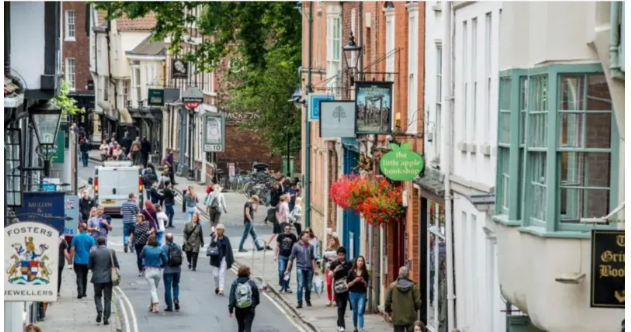
The mayor of North Yorkshire has voiced strong support for the introduction of a tourist tax, joining a growing number of regional leaders who argue that visitors should contribute more towards the upkeep of local infrastructure and services. This call comes amid increasing pressure on local governments across the UK to find sustainable ways of funding the rising costs associated with the tourism industry.
In a recent public statement, the mayor highlighted the strain placed on local resources by millions of tourists who flock to the picturesque towns and villages of North Yorkshire each year. From the iconic landscapes of the Yorkshire Dales to the historic beauty of York, the region attracts visitors from around the world, generating significant revenue for businesses. However, the mayor pointed out that the influx of tourists often leads to increased demand on public services such as transportation, waste management, and healthcare.
North Yorkshire is one of the most beautiful regions in the UK, and it draws visitors year-round, said the mayor. While tourism brings vital income to local businesses, it also places a considerable strain on our infrastructure. A tourist tax would be a fair and effective way to ensure that visitors contribute to the upkeep of the places they enjoy, allowing us to invest in the services that support both locals and tourists alike.
Tourism is a major economic driver for North Yorkshire, with millions of visitors spending money in hotels, restaurants, and local shops. However, the cost of maintaining infrastructure, improving transportation links, and protecting the environment often falls on local taxpayers. The mayor believes that a small tax on overnight stays or certain tourist services would provide a much-needed source of funding to help ease these financial pressures.
The proposal for a tourist tax is not new, as cities like Edinburgh and London have already implemented similar schemes. These cities have seen some success in using the revenue generated to support initiatives such as public transport improvements, cleaner streets, and enhanced cultural attractions. North Yorkshire’s mayor has pointed to these examples as evidence that a well-structured tourist tax can benefit both residents and visitors.
In other major tourist destinations, a tourist tax has been shown to work well. The key is ensuring that the revenue is reinvested into the local community whether it’s for maintaining historical sites, improving roads, or increasing investment in local tourism facilities, the mayor explained.
Local businesses, however, have expressed mixed reactions to the idea. Some small business owners worry that the introduction of a tourist tax could discourage visitors, particularly during the peak tourist seasons. They argue that many visitors already face high costs for accommodation, meals, and attractions, and any additional charge could deter them from returning in the future.
While we understand the need for funding local services, we are concerned that a tourist tax could make our region less appealing to visitors who already spend a lot of money, said Mark Thompson, owner of a popular guesthouse in the Yorkshire Dales. We need to strike a balance between supporting local infrastructure and keeping our region competitive with other tourist destinations.
On the other hand, advocates for the tax argue that it could be implemented in a way that would not burden visitors significantly. They suggest a small charge, perhaps added to the cost of a hotel stay or other accommodations, which would be negligible for most tourists but could generate significant revenue over time. This revenue, proponents say, could then be used to enhance the overall visitor experience while easing the financial burden on local residents.
Additionally, proponents argue that the funds raised from a tourist tax could be directed specifically towards maintaining the region’s natural beauty and historic sites, which are key draws for visitors. With environmental sustainability becoming an increasing priority for many travelers, ensuring that the area’s natural and cultural assets are preserved could make North Yorkshire an even more attractive destination in the long term.
While the mayor’s support for a tourist tax has garnered attention, it’s clear that the debate is far from settled. Local councils in North Yorkshire will need to carefully consider the potential benefits and drawbacks of such a measure, weighing the economic impact on businesses against the need for investment in public services. Additionally, they will have to navigate any legal or political hurdles in order to implement a system that works for the local community.
The idea of a tourist tax in North Yorkshire is still in its early stages, but the mayor’s backing has brought the conversation to the forefront of regional politics. As tourism continues to thrive in the area, the discussion about how to fairly and sustainably fund the necessary infrastructure and services will likely continue to evolve.
For now, residents, visitors, and local business owners alike will be watching closely to see how this proposal progresses. The outcome could set a precedent for other regions in the UK, where the balance between supporting tourism and ensuring long-term sustainability remains a key issue for local governments and communities.

